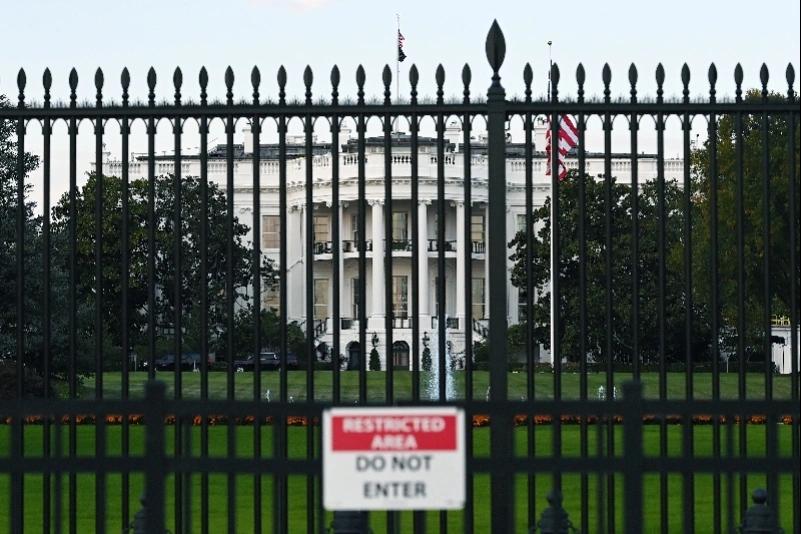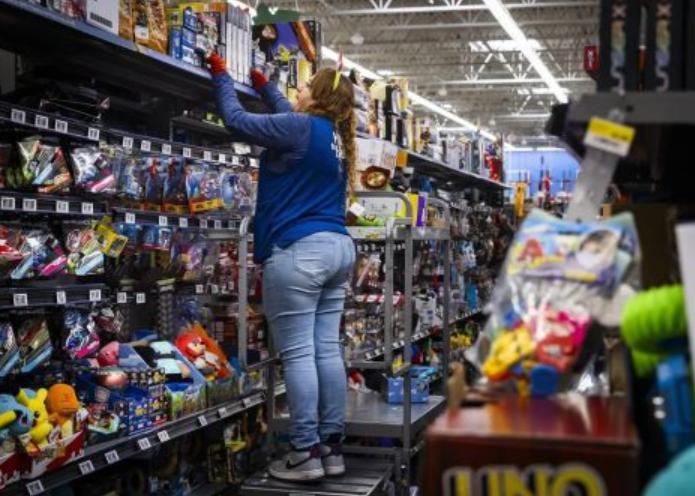
On the local time of November 10, the U.S. Senate passed a temporary appropriations bill by a vote of 60 to 40, temporarily ending the 41-day federal government shutdown. This prolonged political deadlock not only set a new historical record but also allowed the world to witness the various social conditions and economic hardships amid the predicament of American-style governance.
The seeds of this crisis were sown as early as October 1 this year. Since the two parties in Congress failed to pass any regular appropriations bill or temporary funding measure before the start of the new fiscal year, the federal government was forced to partially shut down. As time went on, this shutdown eventually surpassed the 35-day record from 2018 to 2019, becoming the longest one in U.S. history.
On the surface, the core of the deadlock lies in the sharp confrontation between the two parties over the enhanced health insurance subsidies under the Affordable Care Act. The Democratic Party insisted on extending these subsidies as a prerequisite for passing the appropriations bill, while the Republican Party advocated ending the shutdown first before discussing healthcare issues. However, beyond the fog of political rhetoric, this crisis, at a deeper level, reflects the intensification of political polarization in the United States and the decline in governance effectiveness. Professor Wei Zongyou from the Center for American Studies at Fudan University pointed out that both parties are keen on practicing "veto politics" and regard compromise as a betrayal of their own ideals, which directly makes it difficult to reach a consensus on key issues such as government funding.
In this political game, the livelihoods of ordinary Americans became the smallest bargaining chip. According to statistics, at least 670,000 federal employees were placed on furlough without pay, and approximately 730,000 were forced to work without pay, including 13,000 air traffic controllers and 50,000 airport security staff in key positions. A survey by the Federal Employees Union in Washington, D.C., showed that 42% of unpaid employees had already fallen behind on their mortgage or credit card payments.
Yet the actual impact extended far beyond this. In early November, the Supplemental Nutrition Assistance Program (SNAP), which covers about 40 million low-income Americans, suspended the distribution of benefits during a government shutdown for the first time. Although after the intervention of a federal judge, the government agreed to issue half of the November benefits, many low-income families still fell into unprecedented difficulties.
The pressure on the civil aviation system was particularly prominent. Due to staff shortages, the U.S. Federal Aviation Administration (FAA) gradually reduced domestic flights at 40 major airports across the country starting from November 7. Data from flight-tracking websites showed that on November 9 alone, nearly 2,900 flights in the United States were canceled, and more than 10,000 flights were delayed. Idris, Vice President of United Airlines, described the situation as "like dealing with a snowstorm."
On the economic front, the U.S. Congressional Budget Office estimated that for every 4 weeks the government shutdown lasts, it causes an economic loss of approximately $7 billion. Kevin Hassett, Director of the White House National Economic Council, warned that if the shutdown continues, the U.S. economic growth rate in the fourth quarter may turn negative. Consumer confidence was also hit accordingly; the U.S. Consumer Confidence Index dropped to 50.3 in November, the lowest level since June 2022.
A turning point came on the evening of November 9, when the Senate passed a procedural vote by 60 in favor and 40 against, ending the filibuster against the appropriations bill. Notably, 8 members of the Democratic caucus "defected" in this vote and supported the bill together with the Republicans, breaking the political deadlock that had lasted for many days.
Under the agreement, the temporary appropriations bill will provide funding for most federal agencies until January 30, 2026, and at the same time, allocate funds for the entire fiscal year to the Department of Agriculture, the Department of Veterans Affairs, and military construction projects. As part of the compromise, Senate Republican Leader John Thune promised to hold a vote on extending the enhanced subsidies under the Affordable Care Act by the second week of December at the latest. However, this agreement did not fully meet the core demand of the Democratic Party – including the extension of healthcare subsidies directly in the temporary appropriations bill. Senate Democratic Leader Chuck Schumer insisted that "the United States is trapped in a healthcare crisis created by the Republicans" and stated that "Democrats will not give up the fight."
Looking back at this 41-day government shutdown, its impact goes far beyond the figures of economic losses. Professor Linda Bilmes from Harvard University pointed out that "the problems existing in the congressional budget system are the root cause of the shutdown, and the loopholes in the budget formulation and voting process have made the shutdown a recurring issue." Darrell West, a fellow at the Brookings Institution, observed that "the international community's trust in the U.S. governance capacity has declined," which may have a profound impact on the long-term vitality of the U.S. economy.
With the passage of the temporary appropriations bill, the U.S. federal government was able to reopen. However, the political polarization, governance failure, and social division exposed by this record-breaking shutdown will not dissipate quickly. As an American scholar put it, the federal government shutdown has shown the whole world that "the United States does not know how to govern itself." In the foreseeable future, when the temporary funding expires on January 30, 2026, a similar political deadlock may occur again, and the patience and trust of the American people are constantly being consumed in these repeated partisan disputes.

A new survey released in the United States shows that in the context of rising prices and growing concerns among the public about the economic outlook of the country, there is a coexistence of frugality and differentiation.
A new survey released in the United States shows that in th…
By the end of 2025, the situation in the Middle East resemb…
According to Channel NewsAsia, international oil prices hav…
On Sunday, US President Donald Trump Trump met with Ukraini…
Officials in the Trump administration, speaking on Fox News…
In 2025, the Trump administration reshaped the global trade…